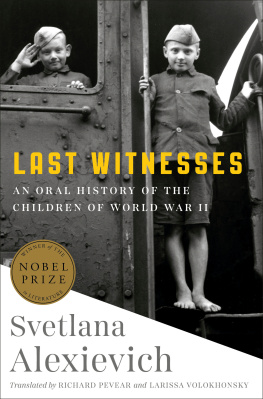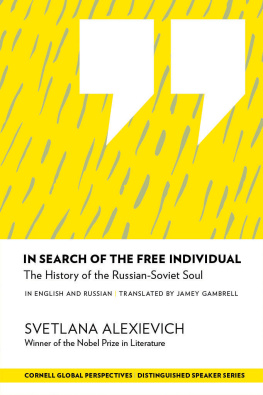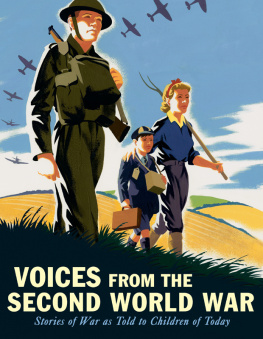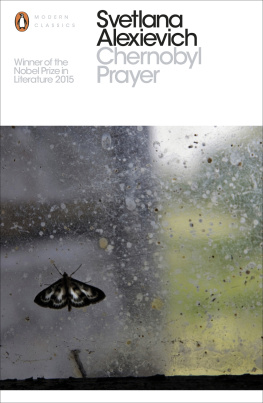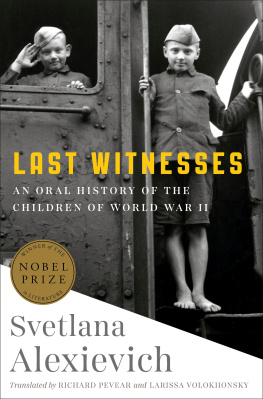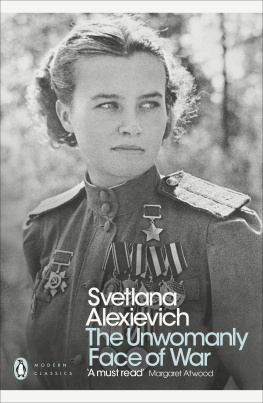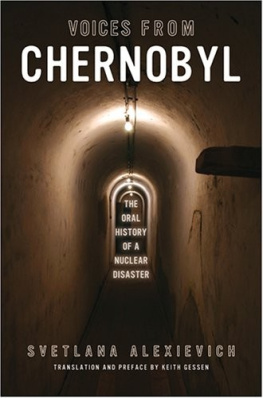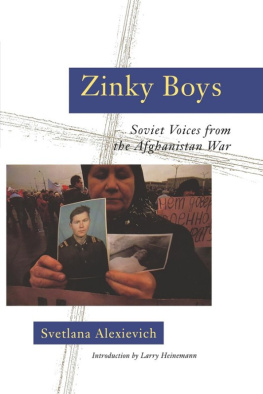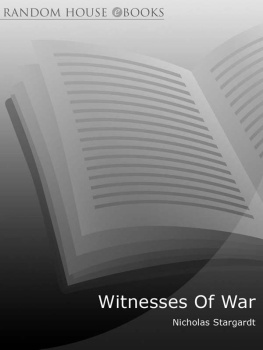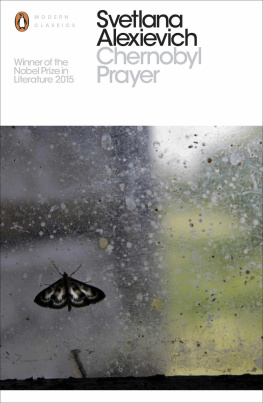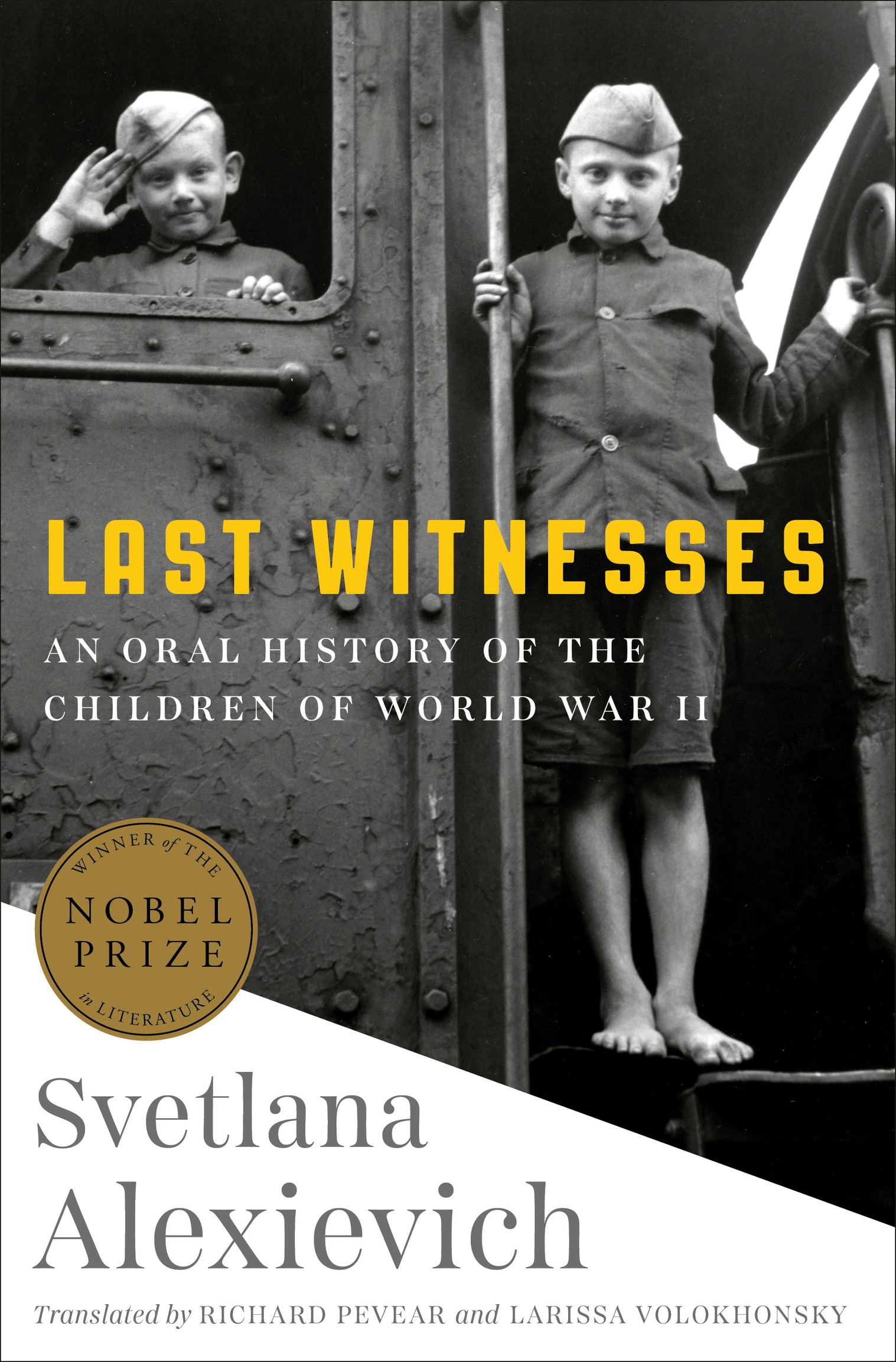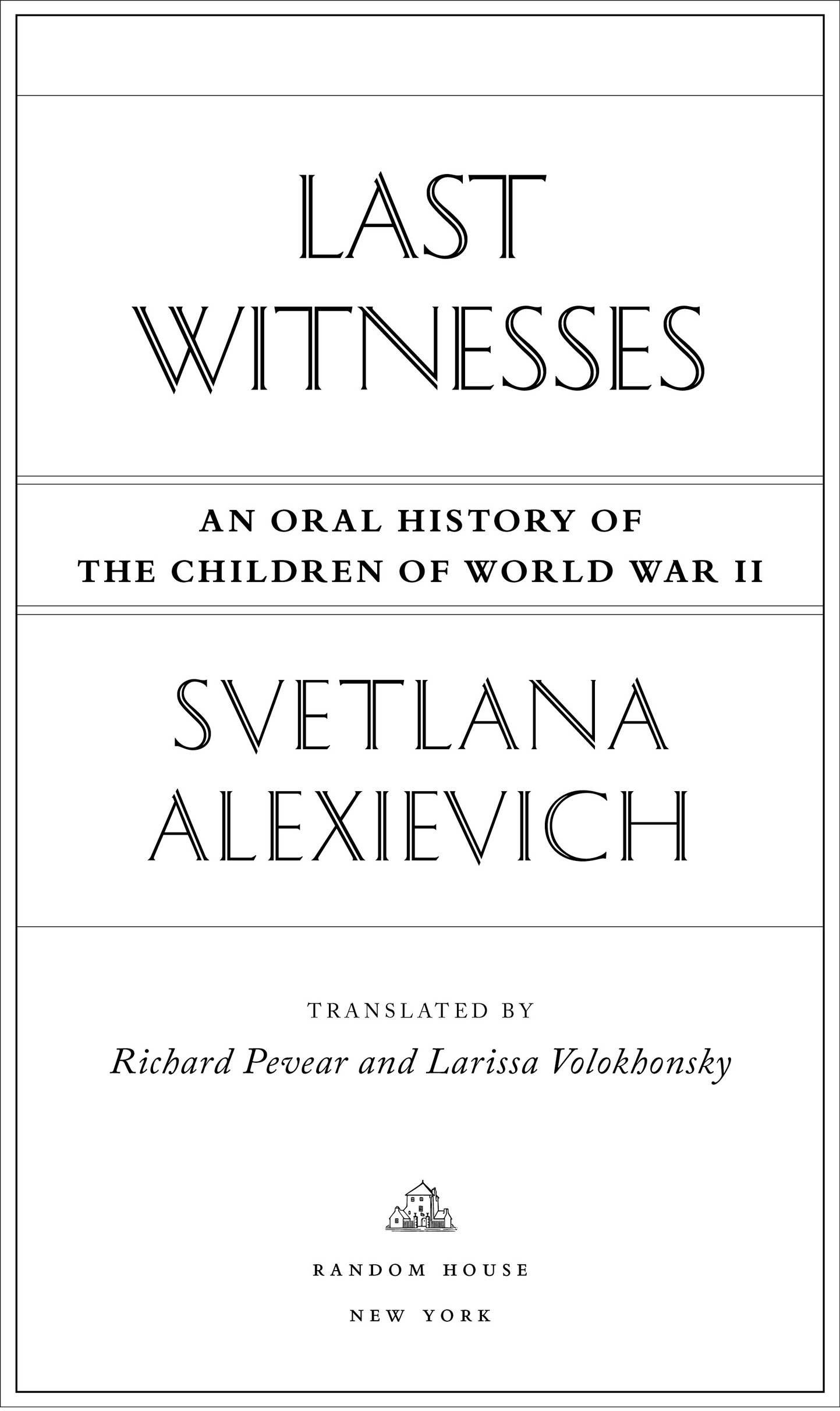Contents
Landmarks
Print Page List
Translation copyright 2019 by Penguin Random House LLC
All rights reserved.
Published in the United States by Random House, an imprint and division of Penguin Random House LLC, New York.
R ANDOM H OUSE and the H OUSE colophon are registered trademarks of Penguin Random House LLC.
Originally published in Russian as : by Molodaya Gvardiya, Moscow, in 1985. Copyright 1985 by Svetlana Alexievich
This English translation is published in the United Kingdom by Penguin, London.
LIBRARY OF CONGRESS CATALOGING-IN-PUBLICATION DATA
Names: Aleksievich, Svetlana, author. | Pevear, Richard, translator. | Volokhonsky, Larissa, translator.
Title: Last witnesses: an oral history of the children of World War II / Svetlana Alexievich; translated by Richard Pevear and Larissa Volokhonsky.
Other titles: Poslednie svideteli. English
Description: First edition. | New York: Random House, [2019]
Identifiers: LCCN 2018034984 | ISBN 9780399588754 | ISBN 9780399588778 (ebook)
Subjects: LCSH: World War, 19391945ChildrenSoviet Union. | World War, 19391945Personal narratives, Soviet.
Classification: LCC D810.C4 A44313 2019 | DDC 940.53/4709253dc23
LC record available at lccn.loc.gov/2018034984
Ebook ISBN9780399588778
randomhousebooks.com
Book design by Barbara M. Bachman, adapted for ebook
Cover design: Anna Bauer Carr
Cover photograph: akg-images/picture alliance/ZB
v5.4
ep
Contents
INSTEAD OF A PREFACE
ONE QUOTATION
In the course of the Great Patriotic War (19411945) millions of Soviet children died: Russians, Belorussians, Ukrainians, Jews, Tatars, Latvians, Gypsies, Kazakhs, Uzbeks, Armenians, Tadjiks
Peoples Friendship magazine, 1985, No. 5
AND ONE QUESTION BY A RUSSIAN CLASSIC
Dostoevsky once posed a question: can we justify our world, our happiness, and even eternal harmony, if in its name, to strengthen its foundation, at least one little tear of an innocent child will be spilled? And he himself answered: this tear will not justify any progress, any revolution. Any war. It will always outweigh them.
Just one little tear
HE WAS AFRAID TO LOOK BACK
Zhenya Belkevich
SIX YEARS OLD. NOW A WORKER.
June 1941
I remember it. I was very little, but I remember everything
The last thing I remember from the peaceful life was a fairy tale that mama read us at bedtime. My favorite oneabout the Golden Fish. I also always asked something from the Golden Fish: Golden FishDear Golden Fish My sister asked, too. She asked differently: By order of the pike, by my like We wanted to go to our grandmother for the summer and have papa come with us. He was so much fun.
In the morning I woke up from fear. From some unfamiliar sounds
Mama and papa thought we were asleep, but I lay next to my sister pretending to sleep. I saw papa kiss mama for a long time, kiss her face and hands, and I kept wondering: hes never kissed her like that before. They went outside, they were holding hands, I ran to the windowmama hung on my fathers neck and wouldnt let him go. He tore free of her and ran, she caught up with him and again held him and shouted something. Then I also shouted: Papa! Papa!
My little sister and brother Vasya woke up, my sister saw me crying, and she, too, shouted: Papa! We all ran out to the porch: Papa! Father saw us and, I remember it like today, covered his head with his hands and walked off, even ran. He was afraid to look back.
The sun was shining in my face. So warmAnd even now I cant believe that my father left that morning for the war. I was very little, but I think I realized that I was seeing him for the last time. That I would never meet him again. I was veryvery little
It became connected like that in my memory, that war is when theres no papa
Then I remember: the black sky and the black plane. Our mama lies by the road with her arms spread. We ask her to get up, but she doesnt. She doesnt rise. The soldiers wrapped mama in a tarpaulin and buried her in the sand, right there. We shouted and begged: Dont put our mama in the ground. Shell wake up and well go on. Some big beetles crawled over the sandI couldnt imagine how mama was going to live with them under the ground. How would we find her afterward, how would we meet her? Who would write to our papa?
One of the soldiers asked me: Whats your name, little girl? But I forgot. And whats your last name, little girl? Whats your mothers name? I didnt rememberWe sat by mamas little mound till night, till we were picked up and put on a cart. The cart was full of children. Some old man drove us, he gathered up everybody on the road. We came to a strange village and strangers took us all to different cottages.
I didnt speak for a long time. I only looked.
Then I remembersummer. Bright summer. A strange woman strokes my head. I begin to cry. I begin to speakTo tell about mama and papa. How papa ran away from us and didnt even look backHow mama layHow the beetles crawled over the sand
The woman strokes my head. In those moments I realized: she looks like my mama
MY FIRST AND LAST CIGARETTE
Gena Yushkevich
TWELVE YEARS OLD. NOW A JOURNALIST.
The morning of the first day of the war
Sun. And unusual quiet. Incomprehensible silence.
Our neighbor, an officers wife, came out to the yard all in tears. She whispered something to mama, but gestured that they had to be quiet. Everybody was afraid to say aloud what had happened, even when they already knew, since some had been informed. But they were afraid that theyd be called provocateurs. Panic-mongers. That was more frightening than the war. They were afraidThis is what I think nowAnd of course no one believed it. What?! Our army is at the border, our leaders are in the Kremlin! The country is securely protected, its invulnerable to the enemy! That was what I thought thenI was a young Pioneer.
We listened to the radio. Waited for Stalins speech. We needed his voice. But Stalin was silent. Then Molotov gave a speech. Everybody listened. Molotov said, Its war. Still no one believed it yet. Where is Stalin?
Planes flew over the cityDozens of unfamiliar planes. With crosses. They covered the sky, covered the sun. Terrible! Bombs rained downThere were sounds of ceaseless explosions. Rattling. Everything was happening as in a dream. Not in reality. I was no longer littleI remember my feelings. My fear, which spread all over my body. All over my words. My thoughts. We ran out of the house, ran somewhere down the streetsIt seemed as if the city was no longer there, only ruins. Smoke. Fire. Somebody said we must run to the cemetery, because they wouldnt bomb a cemetery. Why bomb the dead? In our neighborhood there was a big Jewish cemetery with old trees. And everybody rushed there, thousands of people gathered there. They embraced the monuments, hid behind the tombstones.
Mama and I sat there till nightfall. Nobody around uttered the word war. I heard another word: provocation. Everybody repeated it. People said that our troops would start advancing any moment. On Stalins orders. People believed it.
But the sirens on the chimneys in the outskirts of Minsk wailed all night

